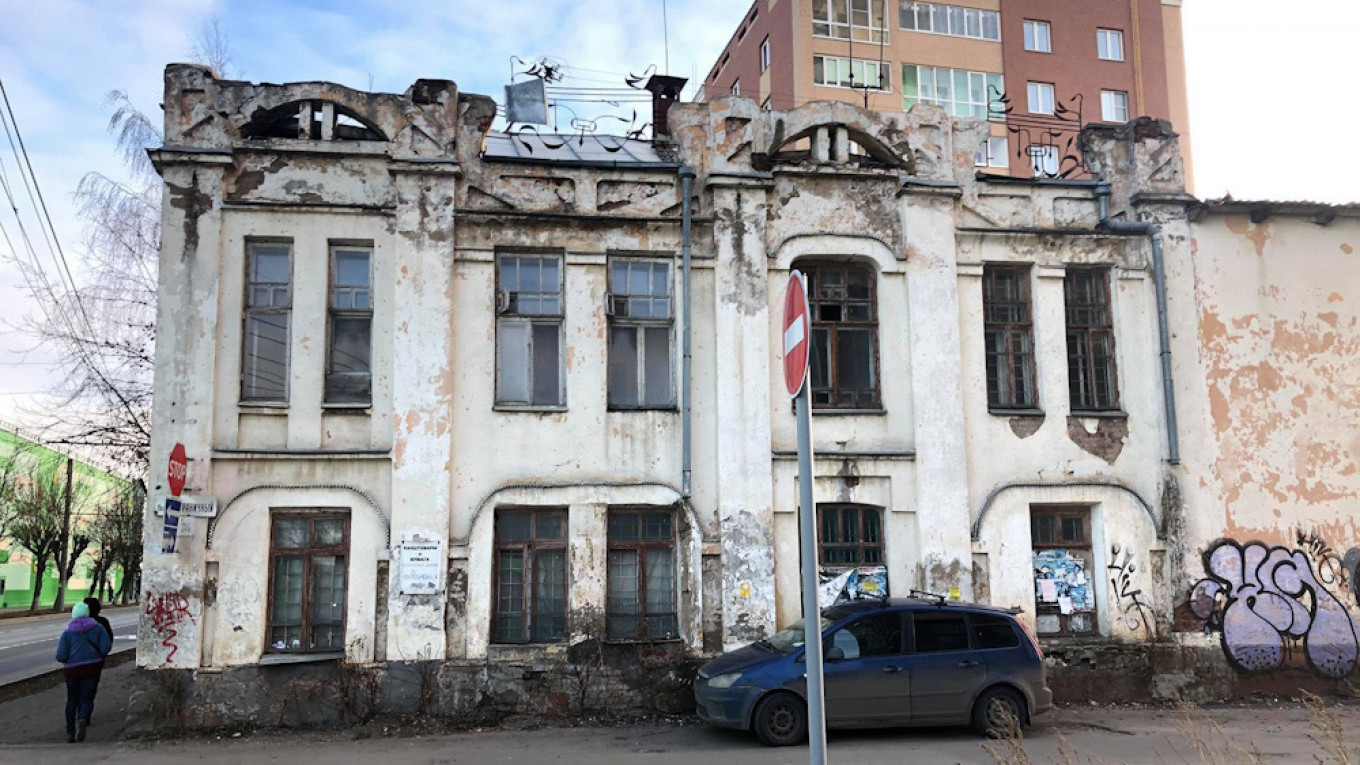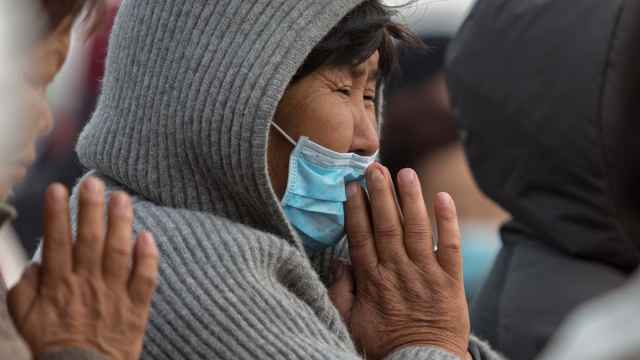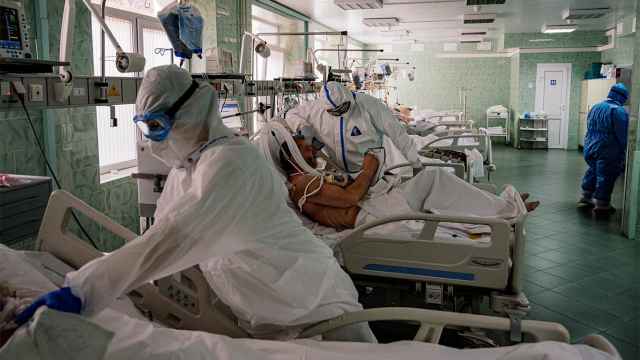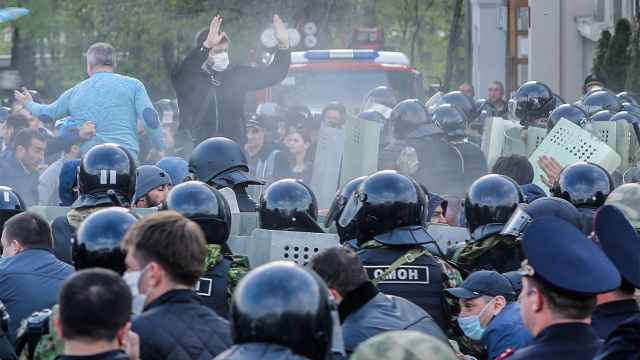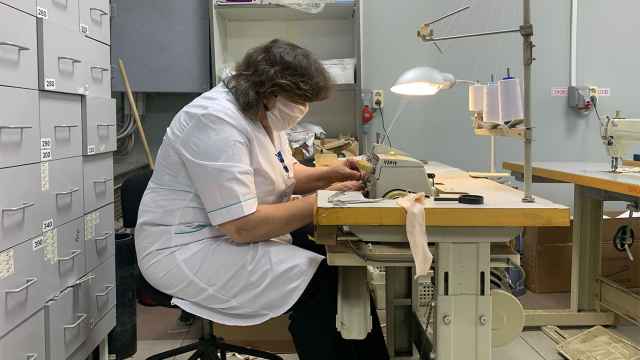IVANOVO — In this hardscrabble city in central Russia, the morgues are full and well-paid jobs are scarce.
Though many of Russia’s outlying regions are struggling with the second wave of the coronavirus pandemic, Ivanovo — a working-class city of 400,000 located 300 kilometers northeast of Moscow — is coping worse than most.
“It’s impossible to see a doctor,” Alexei Kucherov, a 33-year-old IT specialist, told The Moscow Times. “You have to wait hours or even days for an ambulance to come. But it’s not the doctors’ fault, there just aren’t enough of them.”
Despite its location just four hours by train from Moscow, Ivanovo is one of Russia’s poorest cities, with average monthly salaries around a third of those in the capital. That has left its healthcare system teetering during the coronavirus pandemic as doctors have traditionally sought higher-paying employment elsewhere.
With the surge in Covid-19 cases in Russia’s regions in recent weeks, Ivanovo’s already beleaguered health system has been placed under acute strain. While authorities have announced an increase in hospital capacity to cope with the emergency, many locals report long waits for coronavirus testing and treatment.
Official figures put the Ivanovo region’s daily death tolls in single figures, with 155 new cases and three deaths on Nov. 20, but local media reports suggest that Russia’s classification method means the real figure may be substantially higher. Local healthcare authorities have stated that up to 15 people in the region are dying of coronavirus every day.
At a recent meeting of the State Duma’s healthcare committee, Deputy Prime Minister Tatyana Golikova described the situation in Ivanovo as “critical,” with the region’s hospitals having exceeded 95% capacity.
On Monday, Ivanovo region’s healthcare chief Artur Fokin made it clear that the things are getting worse, saying that the region’s Covid-19 caseload had substantially increased.
“Because of this, we are now looking for additional refrigerators, because the morgues are already unable to store the bodies,” he said.
Ivanovo ranks 81st out of 85 Russian regions by average monthly salary, according to a 2019 analysis by the state-run RIA Novosti news agency. The region’s GDP per capita is Russia’s sixth lowest, weighing in at around $3,000 — comparable with that of Tajikistan.
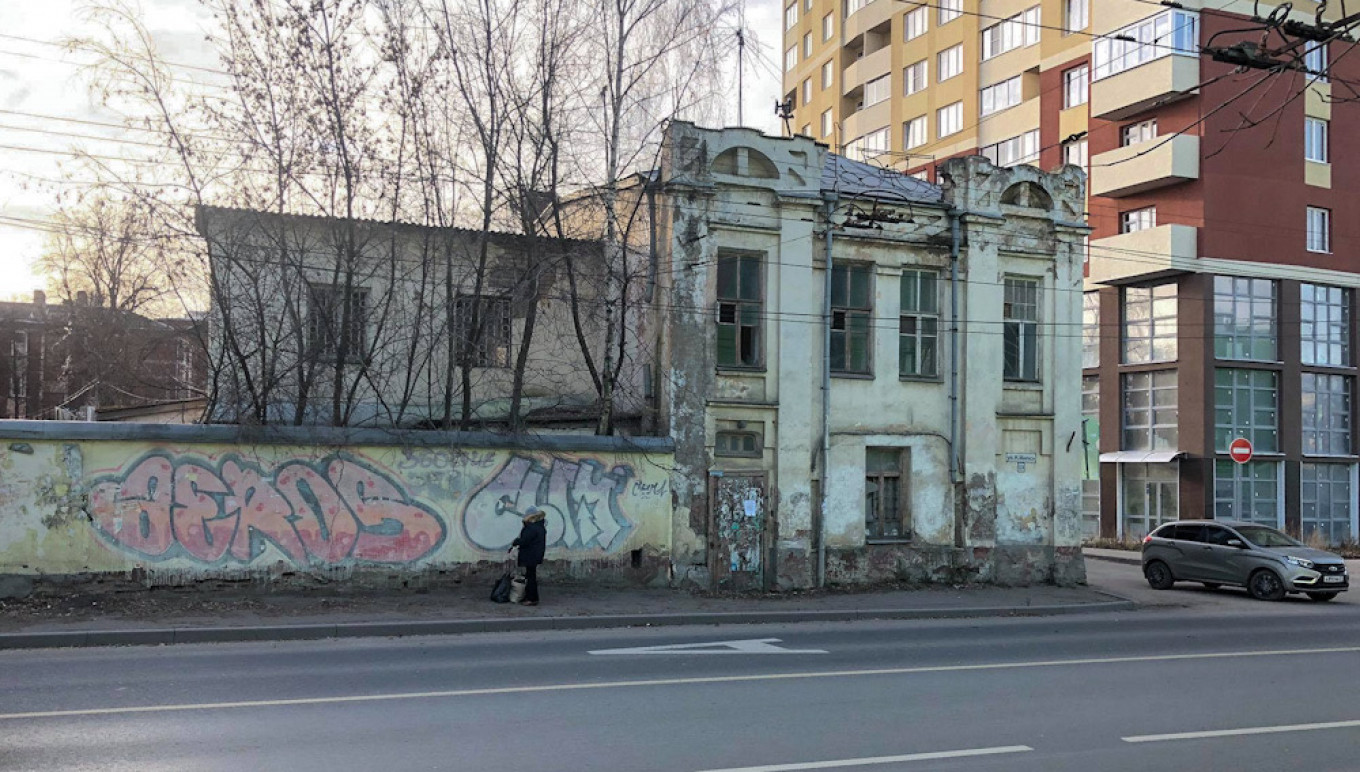
A particular casualty of Ivanovo’s poverty has been its healthcare system. According to data compiled by the state statistics agency Rosstat, an Ivanovo doctor can expect to earn the equivalent of $627 a month, with other medics like nurses and ambulance drivers making around $321 — both the lowest average salaries in central Russia for healthcare professionals, and nationwide ahead only of the impoverished republics of the North Caucasus. Meanwhile, Moscow-based medical staff on average earn over three times as much.
According to several Ivanovo healthcare professionals who spoke to The Moscow Times on condition of anonymity, the prospect of higher salaries in other regions has led to colleagues resigning in pursuit of more lucrative employment elsewhere, despite government bonuses for healthcare personnel working on the frontlines of the pandemic.
Even so, many were reluctant to blame the local authorities, or healthcare professionals, seeing the crisis in Ivanovo as the natural result of many years of stretched resources.
“It’s not really anyone’s fault. People can just get more money working privately, or in other regions,” said Alexei, an Ivanovo region ambulance driver interviewed by The Moscow Times by phone.
‘City of Brides’
A century ago, Ivanovo was an industrial powerhouse. Then the center of Russia’s booming textile industry, it was popularly known as “The Russian Manchester” — a reference to the English city that was the hub of the world’s cotton trade — and “The City of Brides,” on account of its mostly female garment workers.
But the collapse of the Soviet Union hit Ivanovo harder than most provincial Russian cities. The loss of the Central Asian cotton fields that had supplied the city’s mills and the arrival in Russia of cheaper Chinese fabrics sent the city’s signature industry into a downward spiral from which it has never recovered.
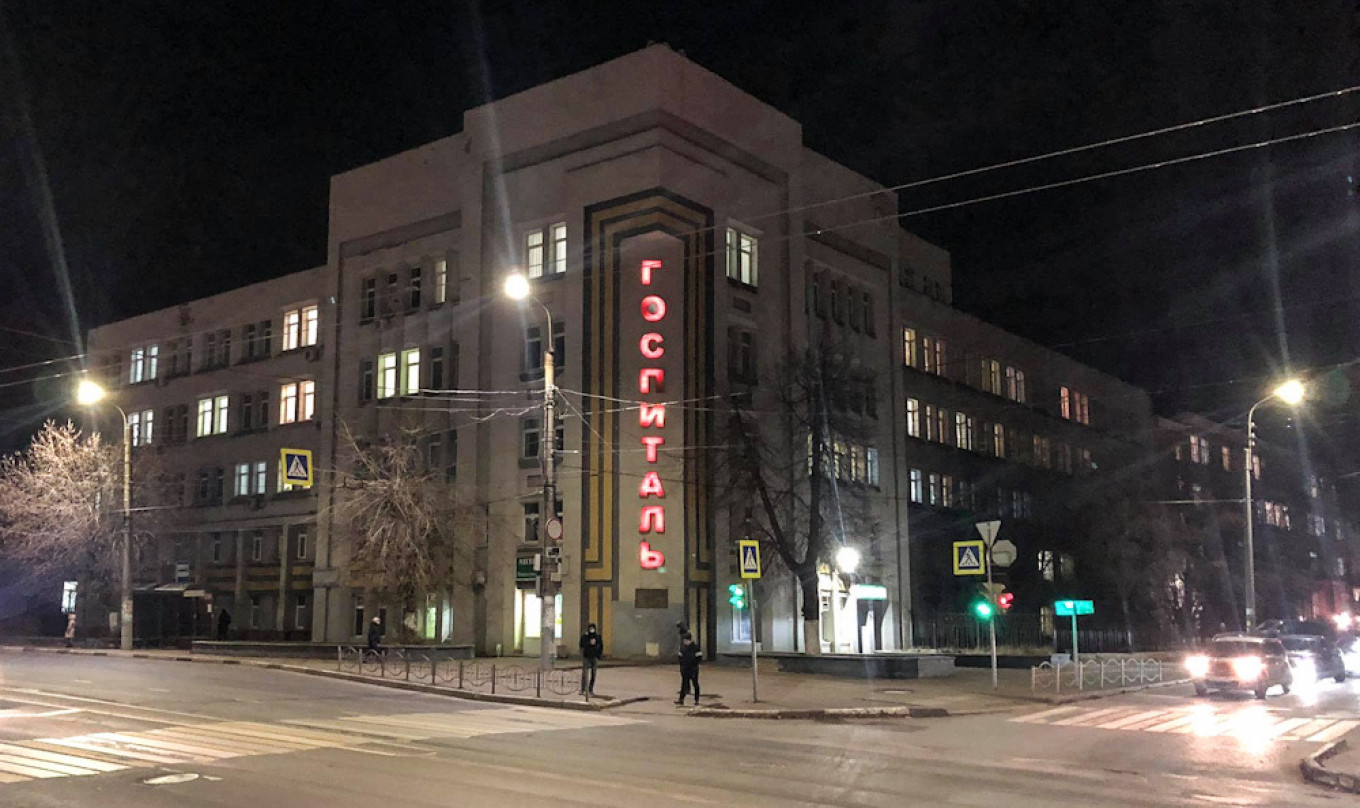
Though many Russian cities outside Moscow and St. Petersburg have struggled with poverty and unemployment since the collapse of Soviet-era industries, Ivanovo stands out for the extreme depth of its slump.
“Ivanovo is just so much poorer even than the neighboring regions,” said Mikhail, a 27-year-old teacher who declined to give his last name.
“We just don’t have the sort of big IT sector you see in other cities. All the jobs are in construction, security or shop work, so most people can’t afford to stay at home to control the virus.”
Faded grandeur
Today’s Ivanovo is a city of faded grandeur. On the city’s central Lenin Avenue, the crumbling mansions of 19th-century textile barons jostle for space with Soviet-era apartment blocks. The vast mills that once employed most of the population either stand empty, or have been converted into budget shopping centers.
In cafes and restaurants, and on the marshrutka minibuses that rattle up and down the streets, mask-wearing and social distancing is observed patchily, despite the threat of a 15,000 ruble ($196) fine — equivalent to half an average monthly salary – for rulebreakers.
Teacher Mikhail said he sees Ivanovo’s extreme coronavirus crisis as a reflection of the city’s underlying difficulties.
“It’s not as though we have people lying in the streets, dying from Covid here. The situation is bad, but it’s because of our economic problems, which are much more deep-rooted than just the pandemic.”
Ivanovo also suffers from its proximity to Moscow. With a new high-speed train taking just four hours to reach the capital, it is easier than ever to seek employment in Moscow, where the median monthly salary of $866 is more than three times that of Ivanovo. As such, many locals seek temporary security and construction work in the capital, rotating between the cities. With the pandemic, however, much of that work has vanished.
Pandemic or no pandemic, in Ivanovo everyday life must go on.
“This is just a depressed region,” said Roman Golov, a 41-year-old self-employed carpenter who has had to take on poorly-paid security work to make ends meet during the pandemic.
“There’s just very little work here. We’re not Moscow. What can we do?”
A Message from The Moscow Times:
Dear readers,
We are facing unprecedented challenges. Russia's Prosecutor General's Office has designated The Moscow Times as an "undesirable" organization, criminalizing our work and putting our staff at risk of prosecution. This follows our earlier unjust labeling as a "foreign agent."
These actions are direct attempts to silence independent journalism in Russia. The authorities claim our work "discredits the decisions of the Russian leadership." We see things differently: we strive to provide accurate, unbiased reporting on Russia.
We, the journalists of The Moscow Times, refuse to be silenced. But to continue our work, we need your help.
Your support, no matter how small, makes a world of difference. If you can, please support us monthly starting from just $2. It's quick to set up, and every contribution makes a significant impact.
By supporting The Moscow Times, you're defending open, independent journalism in the face of repression. Thank you for standing with us.
Remind me later.



